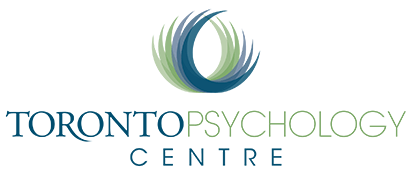
Obsessive-Compulsive and Related Disorders
Welcome to our treatment services for Obsessive-Compulsive and Related Disorders. We provide evidence-based assessment and therapy to children, adolescents, adults and seniors.
What is Obsessive-Compulsive Disorder (OCD)?
OCD often involves both obsessions and compulsions. Obsessions consist of intrusive, unwanted repetitive thoughts, images, or urges (i.e., obsessions) that cause intense anxiety and/or repeated, behavioural or mental rituals (i.e., compulsions) people feel driven to perform. Compulsive rituals serve to reduce anxiety caused by the obsessions and often to prevent a feared outcome, usually involving harm to self or others. However, relief from anxiety is only temporary and people with OCD often find themselves spending many hours of their day attending to obsessions and engaging in rituals that they often know are excessive, unreasonable, and at times, nonsensical.
People suffering from OCD feel they have no control over these thoughts and behaviours and often suffer from guilt and shame. Left untreated, OCD can gradually take over people’s lives, causing intense distress and interfering more and more with their daily routines, work or school, relationships, and leisure activities.
Common obsessions involve themes of:
- contamination (e.g., dirt/germs, HIV/AIDS)
- harm to oneself or others
- symmetry/order and exactness
- unwanted religious or sexual thoughts
- excessive doubting of one’s words or actions
- not-just-right-feeling about thoughts, objects, emotions, or body sensations
Common compulsions include:
- hand washing or excessive cleaning
- excessive checking
- arranging or ordering
- praying or mental compulsions like replacing a bad thought with a good thought
- mentally reviewing situations
- repeating behaviours (e.g., erasing, re-ordering or adjusting, re-reading)
Treatments for Obsessive Compulsive Disorder (OCD)
The most effective treatment for OCD is a form of CBT called Exposure and Response Prevention (ERP). Exposure involves directly and gradually facing the uncomfortable situations and/or thoughts that trigger distress and avoidance. This leads to habituation, or getting used to that situation or thought. Response prevention focuses on resisting urges to engage in compulsions and other behaviors that generate a false sense of safety, such as reassurance-seeking.
Hair Pulling Disorder & Excoriation (Skin Picking) Disorder
These disorders involve body-focused repetitive behaviours (i.e., chronic hair pulling and skin picking) that are difficult to stop. There is often a sensory component in that people tend to try to find a hair that “feels” right or an area of their skin that “feels” different. They may engage in the behaviour automatically (without awareness) or do so in a planned and focused manner. Compulsive pulling or picking may be triggered by uncomfortable urges or feelings (e.g., anxiety, anger, stress, or boredom), by situations or context (e.g., watching T.V., reading, surfing the internet, in the bathroom or bedroom), or by negative thoughts about physical appearance. Many people describe a feeling of pleasure or relief at the sensation of pulling out their hair or picking at their skin. However, afterward, they are often left feeling ashamed, guilty, depressed, or anxious. Chronic pulling or picking results in physical damage (e.g., noticeable hair loss, patches in hair growth, open sores, permanent scars, skin infections), which many conceal through the use of wigs, scarves, make-up, clothing, etc. or by avoiding social situations altogether.
Treatments for Hair Pulling Disorder & Excoriation (Skin Picking) Disorder
The most researched and commonly used treatment for hair pulling and skin picking is a form of CBT called Habit Reversal Training (HRT). We use an enhanced treatment model that incorporates both Habit Reversal Training (HRT) and Acceptance and Commitment Therapy (ACT). HRT focuses on helping individuals develop awareness of their hair pulling or skin picking behaviours and the context in which it occurs. It also helps them to identify and reduce stimuli or situations associated with the behaviour, learn to substitute an action (e.g., fist-clenching) that is incompatible with the pulling or picking behaviour, and learn relaxation and coping techniques to reduce stress and agitation. ACT complements HRT by teaching mindfulness skills that increase awareness and enhance coping. It also aims to alter the thoughts and feelings surrounding the pulling and to remove the compulsive aspect of the pulling urge.
Recent research has also shown that learning to increase one’s tolerance for negative or or uncomfortable inner experiences may be more effective for individuals who intentionally engage in pulling or picking behaviours. Increased tolerance for negative emotions can also increase effectiveness for those individuals who pull or pick without awareness. Therefore, interventions (such as those taught in ACT or EFT) that help you learn to mindfully attend to, tolerate, and accept internal sensations and emotions are integrated into treatment.
Please contact us to find out more about treatments for Obsessive Compulsive and related disorders (OCD).
